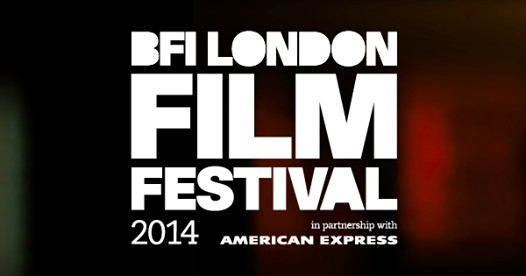Philip Bagnall reports on an eclectic mix in our second report from this year’s London Film Festival. Warning: may contain 3D, life lessons and Reese Witherspoon.
 Goodbye To Language (Adieu Au Langage) (dir. Jean-Luc Godard) (Irish release date: TBC)
Goodbye To Language (Adieu Au Langage) (dir. Jean-Luc Godard) (Irish release date: TBC)
He may no longer be an enfant, but 83-year-old Jean-Luc Godard is still capable of unleashing terrible surprises upon an unsuspecting public. His latest, Goodbye To Language, is the latest expression of a line of thought he’s espoused for 30-odd years now, namely that cinema is dead. If cinema as Godard knows it is dead, how can it remain so angry?
Plot is minimal, based around a couple splitting apart to the point they can no longer understand one another. But this isn’t why we’re here. Godard’s raison d’être is to mock. Once upon a time, the mockery was playful (“Si vous n’aimez pas la mer…”, etc., etc.), but now his ire comes in three dimensions. He takes 3D, presumably the latest gimmicky nail in cinema’s coffin, and uses it as a weapon to bring his point home. Despite the 3D, the film is badly shot and the sound design is purposefully horrid. Loudness cuts to silence and vice versa, with little warning and less sense. The film is purposefully antagonistic; neither the film’s plotting nor it’s technical competence can be relied upon, which is exactly the point.
At the very least, Goodbye To Language contains one of the most memorable shots of any film in recent memory. A woman sits on a bench talking with a man, then gets up to argue with a suited aggressor nearby. It’s memorability comes from the 3D; even though the camera pans right and the first man should be out of shot, the 3D ensures all parties appear to remain in the shot. The effect is headache-inducing any eye-crossing; each man sits in one viewer’s eyeball, while the woman flits between the two. The audience is pained, but the woman echoes Godard’s likely sentiment as she repeatedly shouts, “Ça m’est égal!” (“I don’t care”).
Goodbye To Language is an angry howl of a film, to the point where its lack of subtlety becomes just too obvious. A couple of scenes see the husband talk with his young wife while taking a loud, splashy dump. Another sees the woman take off her clothes in front of a television showing Lang’s Metropolis; subtle much?! Indeed, the best scenes are just naturalistic shots of a dog walking about a forest. Indeed, the 3D in these scenes is scarcely noticeable in comparison. Goodbye To Language is an enveloping experience, but to recommend it is to doom an audience to frustration.
 A Second Chance (En Chance Til) (dir. Susanne Bier) (Irish release date: 2015 TBC)
A Second Chance (En Chance Til) (dir. Susanne Bier) (Irish release date: 2015 TBC)
A Second Chance (En Chance Til), director Susanne Bier’s second film of 2014 (after the less-than-riveting Serena), is shrouded in sadness. It opens on a wide shot of a bridge and a forest enveloped in fog and the blue light of dawn. Thinking about it, there aren’t many comedies from Scandinavia that get a wide release; ironically, the first one to spring to mind is The Boss Of It All (2006), directed by Lars von Trier, of all people. Read into that what you will.
A Second Chance starts off like a police procedural, with partners Andreas (Nikolaj Coster-Waldau) and Simon (Ulrich Thomsen) breaking down the door of recently-released drug dealer Tristan (Nikolaj Lie Kaas). The cops find their man, but they also discover his infant son lying in his own waste. This opening grabs the attention and sets the tone for the rest of the film i.e. grim. A Second Chance is clearly keen to raise a lot of issues. There’s drug use aplenty with Tristan, his girlfriend Sanne (May Andersen) and their negligent ways. There’s also a clear class element at work here; compare Tristan’s life to Andreas’, who has a beautiful home, wife (Maria Bonnevie’s Anne) and infant son of his own. Despite this, plot machinations win over the issues.
When tragedy strikes, Andreas and Anne are faced with an opportunity. Without saying too much, the police procedural segues into family drama as Andreas’ actions drive him and Anne towards the edge of morality; it’s shocking to see how far a parent’s love can go. Unfortunately, writer Anders Thomas Jensen throws a lot of twists in the way in order to squeeze in as many issues and themes as possible. Revelation upon revelation takes us from drug abuse to neglect to postpartum depression. The narrative turns require a few leaps of faith, while the themes could use a bit more air to breathe.
Despite these issues, A Second Chance is an effective plumbing of moral depths, with Coster-Waldau proving a solid anchor around which some horrific events unfold. It ain’t pretty, but Bier doesn’t sugarcoat.
 Wild Tales (Relatos Salvajes) (dir. Damián Szifrón) (Irish release date: 6th March 2015)
Wild Tales (Relatos Salvajes) (dir. Damián Szifrón) (Irish release date: 6th March 2015)
Wild Tales (Relatos Salvajes) opens with a plane full of passengers on a routine flight. However, they learn that something connects them, and the mood grows more sinister as more information comes to light. It culminates in an act of bare-faced revenge that is sinister, strangely elaborate and howlingly funny. The rest of the film is also sinister and elaborate. Funny? To a point.
Written and directed by Damián Szifrón, this Argentinian comedy is made up of six stories, each one with a different cast and plot, but all broadly united by a theme of vengeance. Human beings can be relatively petty; the wild animals that feature in the film’s opening credits don’t ‘do’ revenge, but it is in our nature to act out against perceived injustice and thus doom ourselves. The opening jet stunt sets the tone, with each story boasting an outlandish charm building to climax you just can’t anticipate. A waitress hems and haws over getting revenge on a gangster, before fate (and the chef) intervene. Meanwhile, a wedding feast turns so hellish, you could imagine it being a mini-prequel to Gone Girl.
Unfortunately, Wild Tales is unable to maintain its manic energy across its two-hour runtime. The funniest story sees two motorists duelling for supremacy on a desert road, a tale which is by turns surreal, disgusting and sidesplittingly funny. It’s followed by a story of a man who takes revenge on a clamping company in Buenos Aires after being towed once too often. After the stories that came before it, this tale is less compelling
and less funny than the three stories that preceded it. Worse still is a hit-and-run story that aims for black comedy and widely misses the mark, barely raising a giggle. This tale in particular is just that bit too pointed and matter-of-fact to play well next to the other stories.
Like so many comedies, Wild Tales is hit and miss, but when it hits it leaves a mark. It’s confident in its black humour; perhaps a little too confident.
 Wild (dir. Jean-Marc Vallée) (Irish release date: 16th January 2015)
Wild (dir. Jean-Marc Vallée) (Irish release date: 16th January 2015)
Remember, when life throws you a lemon, put it in your pocket and walk 1,100 miles. Wild may be based on a true story, but its message of spiritual enlightenment is so airy and tonally awkward that it’s impossible to take seriously.
In a blatant award-baiting role, Reese Witherspoon plays Cheryl Strayed, a young woman who’s lost her way. She opts to find it by walking the Pacific Coast Trail from the Mexican to Canadian borders. You know how this story goes; she arrives full of enthusiasm, underestimates the challenges ahead, learns lessons on the way and finds herself. If you think that sounds trite, try watching the film. Cheryl proceeds to moan, lose toenails and chase away errant wildlife whilst being interrupted by repeated flashbacks, mostly of her late mother (Laura Dern). It was her mother that inspired Cheryl to follow her own path, but it’s unlikely this trip was what she had in mind.
The message of self-discovery and improvement is hammered home by flashbacks to Cheryl’s wayward ways. Extra-marital affairs, drug abuse and family trauma give Witherspoon fuel with which to lay claim to another Oscar. Getting naked could be a brave move by Witherspoon, except Wild lacks the courage of Cheryl’s convictions. Director Jean-Marc Vallée (Dallas Buyers Club) goes overboard again on the handheld cameras, but the flashbacks and grating attempts at spirituality of Nick Hornby’s script rob the film of any sincerity. There’s some undeniable natural beauty on show, but Cheryl’s continued pursuit of some sense of self feels both vague and insincere. She pompously co-credits herself beside poets on quotes she leaves in log books along the trail, while a scene in which she attempts to befriend a badly CG’d fox feels like an unintentionally funny nod to Antichrist. Chaos reigns, indeed.
For a film named Wild, it’s quite tame. Think of it as this year’s Eat Pray Love (Walk Whine Flashback?); an accessible but drippy attempt to find oneself in the comfort of your cinema chair. As if.

